A Look Into the Future: The Los Angeles Olympics in 2028
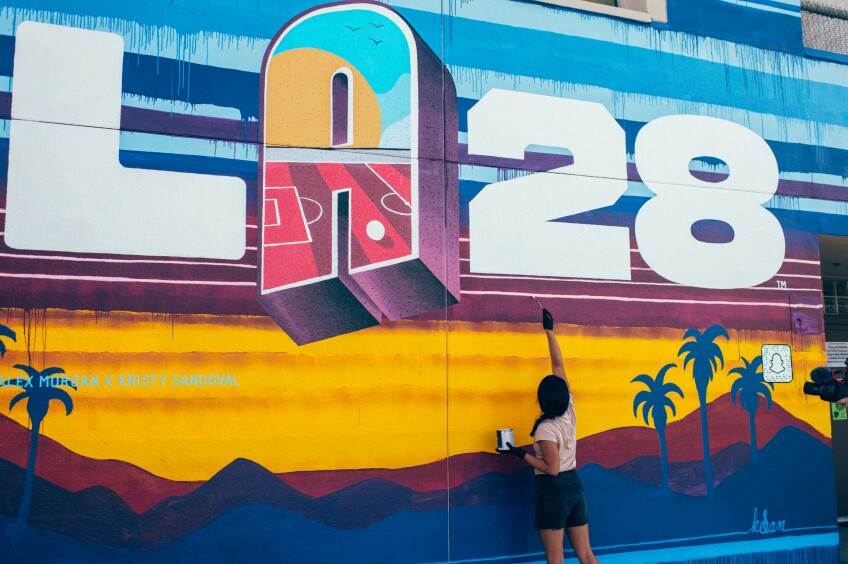
"L.A. has a long love affair with the Olympic Games and the Olympic movement. The legacies from the 1932 and 1984 Games still resonate across our great city, and they are part of the reason that 88% of Angelenos passionately support our bid" states L.A.'s 2024 bid book, which rather unusually helped win them the rights to the '28 Games owing to the lack of other willing host cities. That they were awarded the '28 Games despite bidding for '24 demonstrates the IOC's eagerness to get a host booked in, and the issues the Olympic movement is once more facing following the financially disastrous 2016 Rio Summer Games and 2014 Sochi Winter Olympics.
The parallels with '84 are striking. In the bid book, L.A.'s Organizing Committee emphasizes how the Olympic movement needs a solid host, just as it did 37 years ago. L.A. aims to provide that with its abundance of sporting venues, public spaces and operational experience.

The city's organizers will again construct only temporary competition venues to ensure the event is sustainable financially and environmentally; however, some private venues such as SoFi Stadium in Inglewood are being built by private investors (in SoFi's case, Arsenal and L.A. Rams owner Stan Kroenke) that would not have been built were the Games not on the horizon. Given that over 60% of Inglewood residents rent rather than own their properties, there have been concerns voiced by the local community about potential displacements due to the development.
Temporary or not, the cost of the LA28 Olympics is projected to reach nearly $7 billion, supposedly making a profit "in the high hundreds of millions," according to Mayor Eric Garcetti. However, Olympic costs are often underestimated; researchers from the University of Oxford worked out that Olympics costs since 1960 have overrun their budgets by 172% on average.
Given that L.A. is currently in the midst of an affordable housing crisis, some feel the billions would be better spent somewhere other than on the Olympics. This is especially pertinent as the Games' related tourist influx, which encourages building of hotels and increased use of Airbnbs, tends to negatively impact local communities, house prices and the rental market.
The 1984 Olympics Arts Festival and the subsequent Los Angeles Festival are two events which LA28 would do well to emulate. "An explosion of cultural expression in Los Angeles has happened since," says Danielle Brazell, General Manager of the City of Los Angeles Department of Cultural Affairs, "I think [the '84 Arts Festival] really helped pave the way for civic and public sector support of culture in the city."
Peter Sellars' well-received Los Angeles Festival was held in 1987, partially aiming to amplify local voices that went under the radar during the more internationalist Olympics Arts Festival. "It was kind of the inversion of the Olympics Arts Festival," says Brazelle, "It built upon local culture — utilizing churches, parks, barber shops, coffee shops — and showed that L.A. had world class, extraordinary work." While not directly involved with the Games' organization, the DCA will advocate for similar local involvement at the '28 Games and their Cultural Olympiad. "Our focus is on equity," says Brazell, "Which means making sure that L.A., as a global city, is presented as more than just beaches and ocean and Hollywood Boulevard, since it's an epicenter of art and creativity — and a truly multicultural society."

The challenge lies in making sure that cultural developments don't come at the cost of citizen well-being. "When we do start to see cultural development come into communities, especially communities that have not had enough support and resources in the past, it creates tension," explains Brazell, "the Olympics will no doubt produce that, so the question becomes: what is the process for the Olympics to invest in sustainable and equitable community development, whether through culture or the built environment?" Mega-events such as the Games have a habit of being high-cost, low-nuance.
1984 Revisited
The design legacy of '84 should be significant, and it seems LA28 has tried to emulate this via its logo design, the 'A' of which changes depending on which of the 28 celebrities/ambassadors it is designed by. A range of familiar names were chosen to design logos, ranging from actor Reese Witherspoon, to graffiti artist Chaz Bojorquez and chef Jorge Joy Alvarez-Tostado, a renowned taquero.
Selecting a range of Angeleno designers to design their own 'A' is perhaps not the most subtle way of representing the fact that L.A. "defies a singular identity," as LA28 Chief Athlete Officer Janet Evans put it. While it implies a commitment to a diverse range of voices throughout the city, LA28 is yet to directly engage or work with any community organizers or representatives.
Click right and left to see the different LA28 emblems made by local voices.


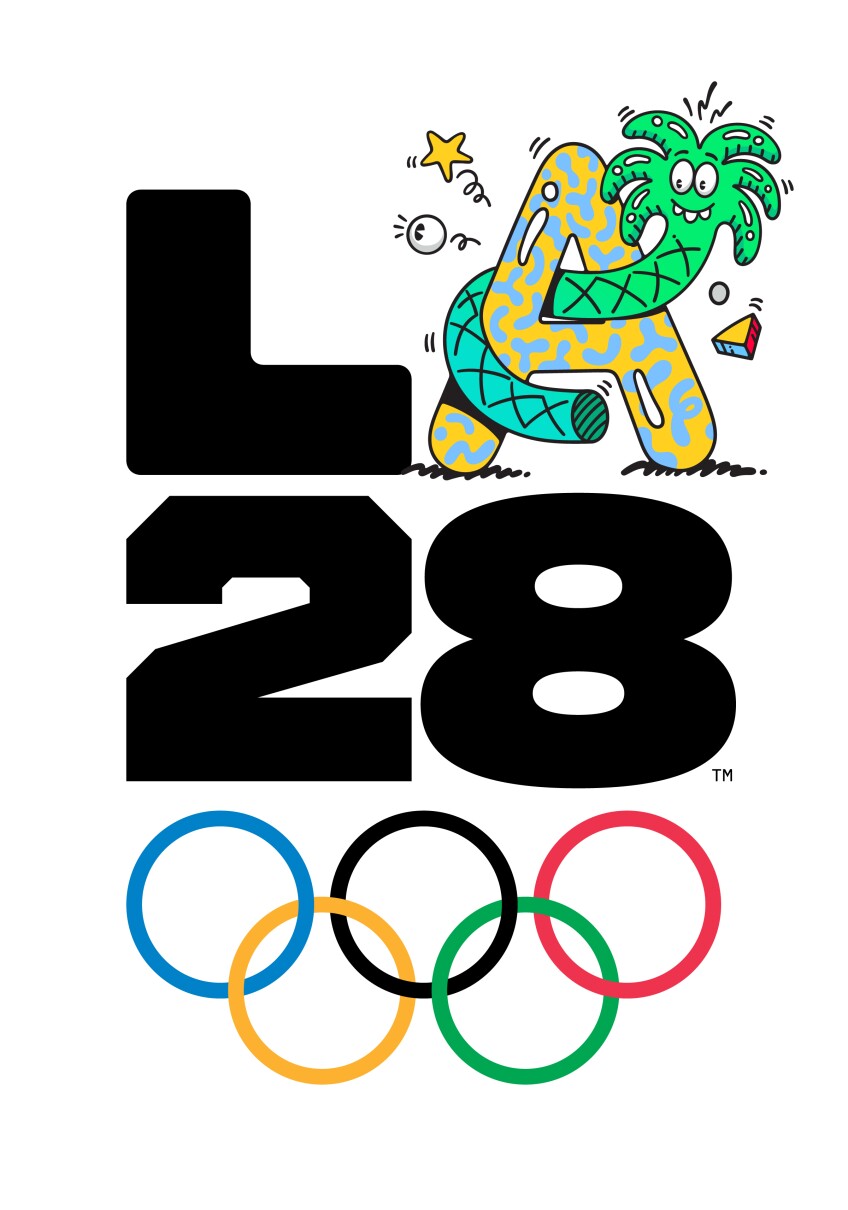




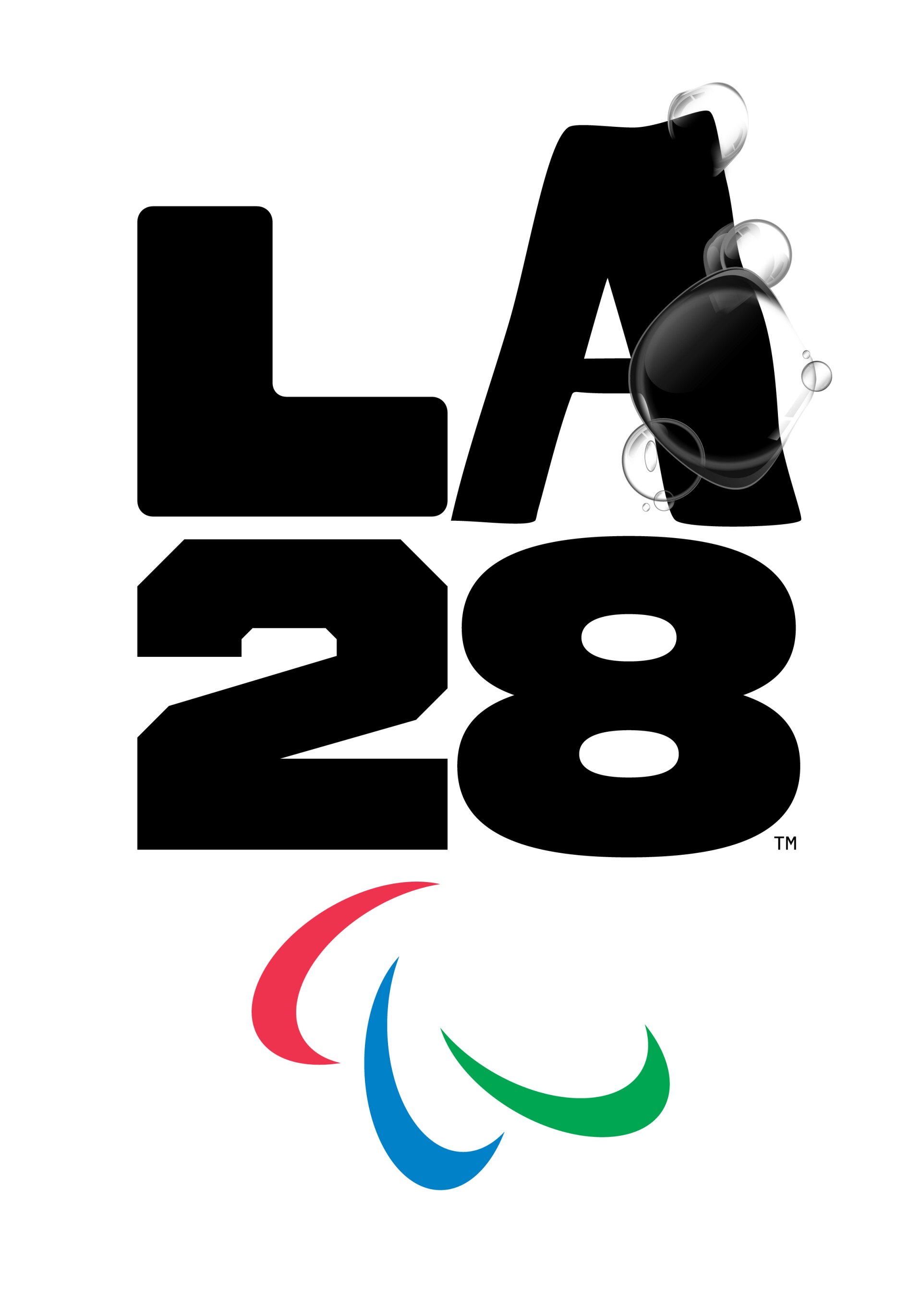



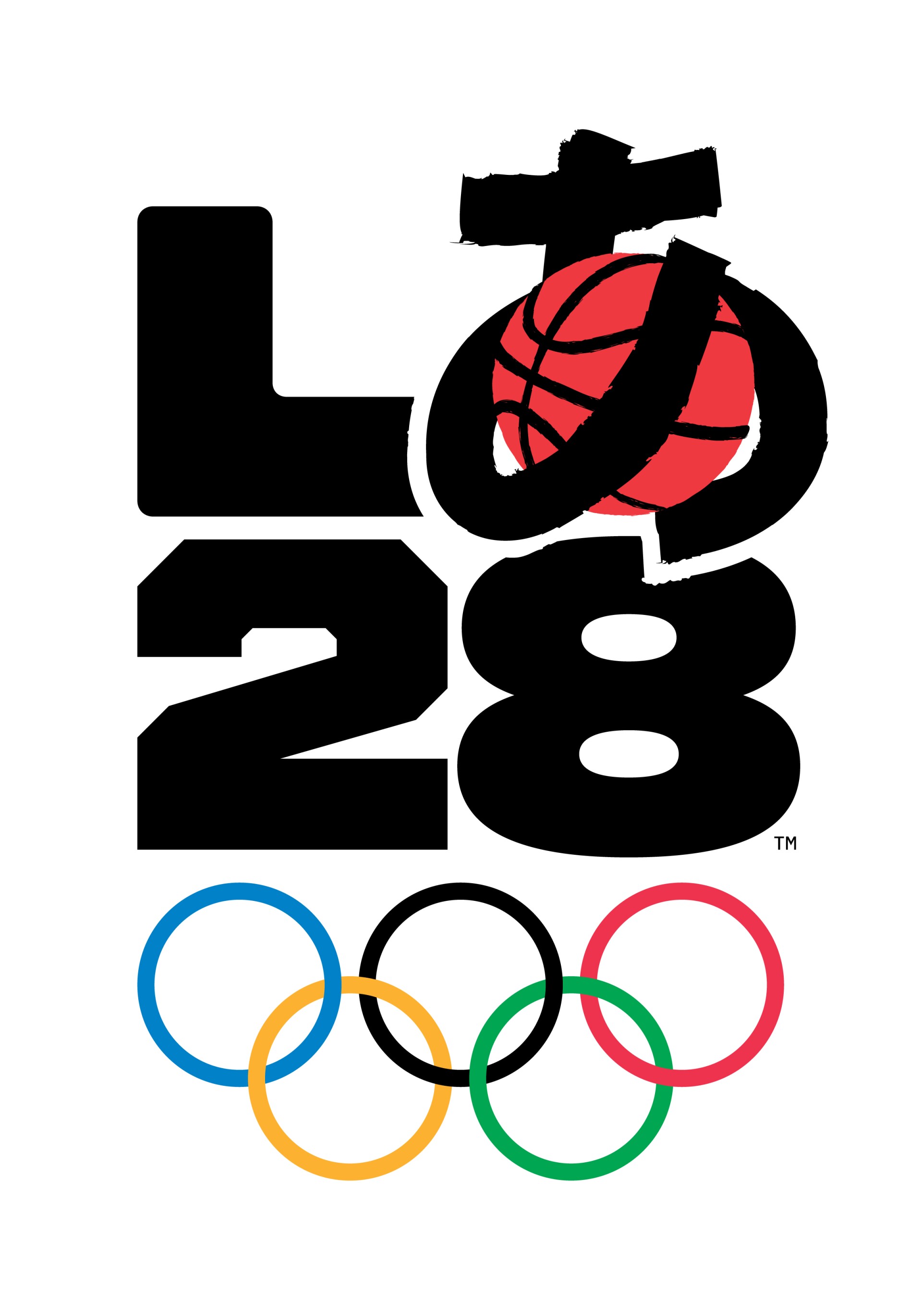
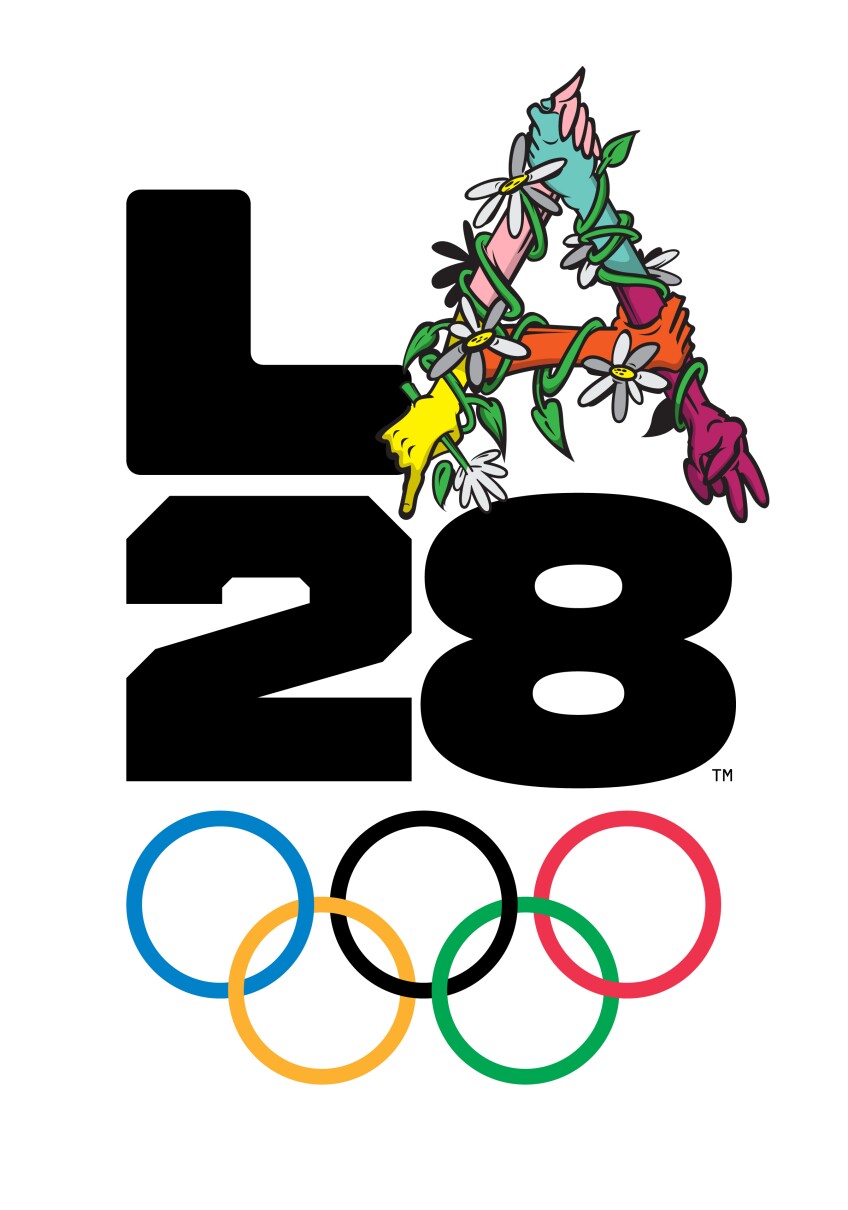



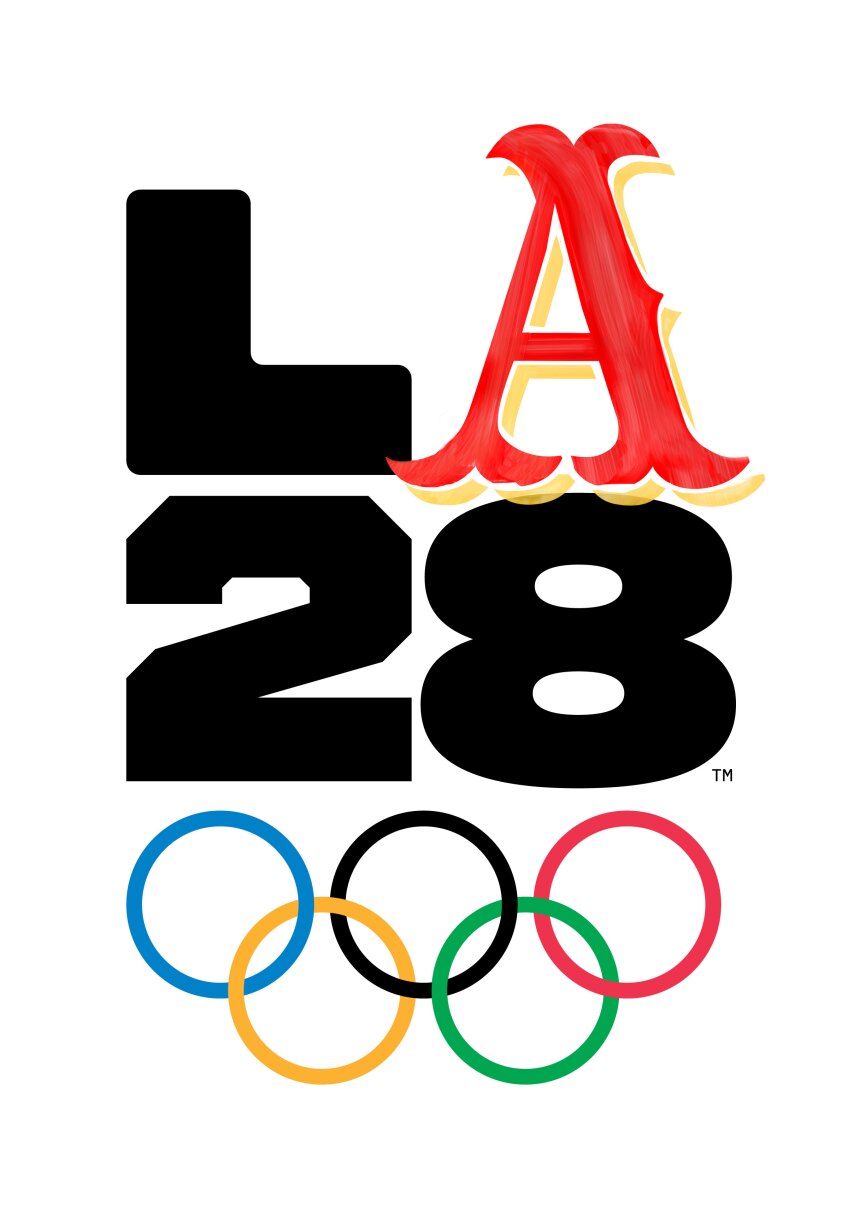



There is no reason LA28 should not hearken back to the success of 1984's designs; postmodernism is still semi-popular, and striking designs such as those prevalent in '84 are especially effective on visually dependent mediums such as Instagram, which is, after all, where much of the Games will be consumed. If LA84's designs were perfect for the small screen, then '28 should focus on the even smaller one and its aesthetics should reflect this. Its logos, which are each accompanied by a small animation, are indeed described as "built for the digital age," though tailored GIF aside it's unclear yet exactly how.
Having a range of logos — all with different constituent parts — seems to recall 1984's kit-of-parts design, but without a binding color scheme, the designs appear a tad incongruous. "It's an interesting idea in theory," says Paul Prezja, who helped orchestrate the designs for '84, "But not necessarily in practice. They could've employed designers or creatives to do them instead of celebrities." L.A. is, of course, rife with artistic talent.
Onwards, Looking Back
Civic change is hard to muster, but there are signs — the civic memory project, for example — that L.A. is becoming more conscientious in its approach to the built environment. Regardless, the 2028 Olympic Games in Los Angeles leaves L.A. with a lot of questions to answer, especially after the numerous civic issues which have arisen in Tokyo before the Games have even finished. "The big question is what happens after the Olympics and when the visitors leave. Will we have a stronger cultural ecology in place? Will we have stronger communities?" says Brazell, "I don't know."
In '32, though the games were financially and reputationally successful and expanded L.A.'s position on the world stage immeasurably, economic struggles and racial segregation would continue for years to come. It was mainly real estate magnates who benefited in the long-run from the '32 Games' success as the prices of their portfolios benefitted from L.A.'s allure. In '84, too, there were socioeconomic issues, racial tensions and a host of other city and state-wide challenges that preceded the Olympics. The Games gave the city a self-celebration session, as well as a feeling of togetherness for a couple of weeks, but it didn't last.
LA28 looks likely to again occur at a time of division in Los Angeles and America; it remains to be seen whether an Olympics defined by temporariness can cause citywide change that lasts longer than a fortnight.








